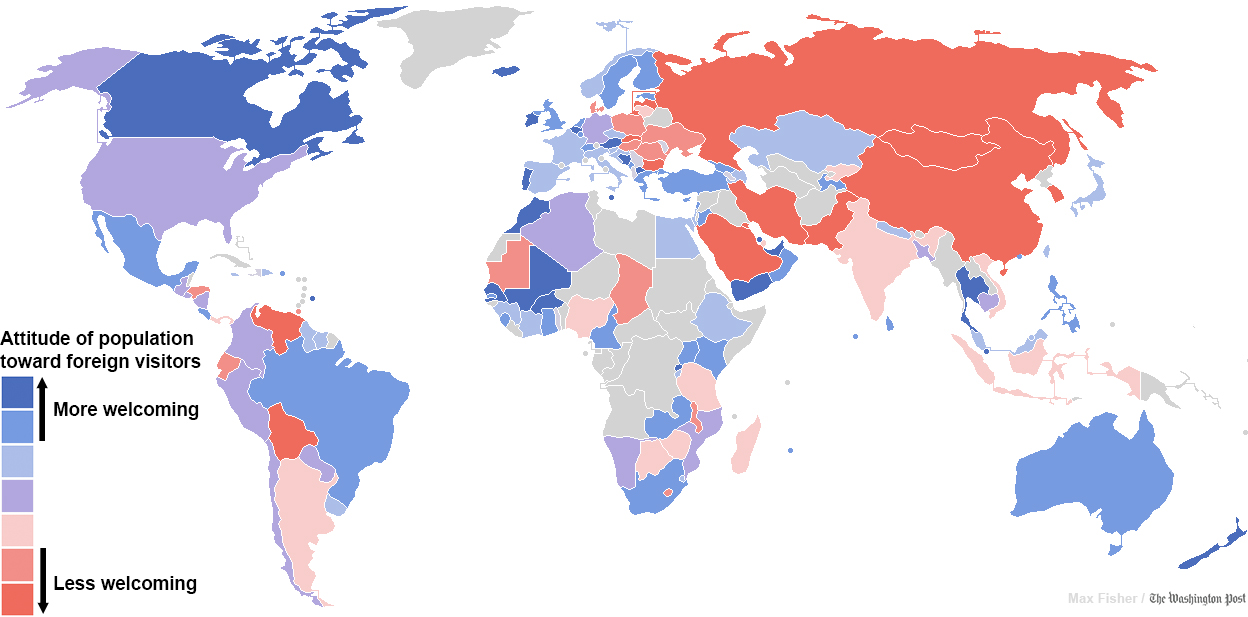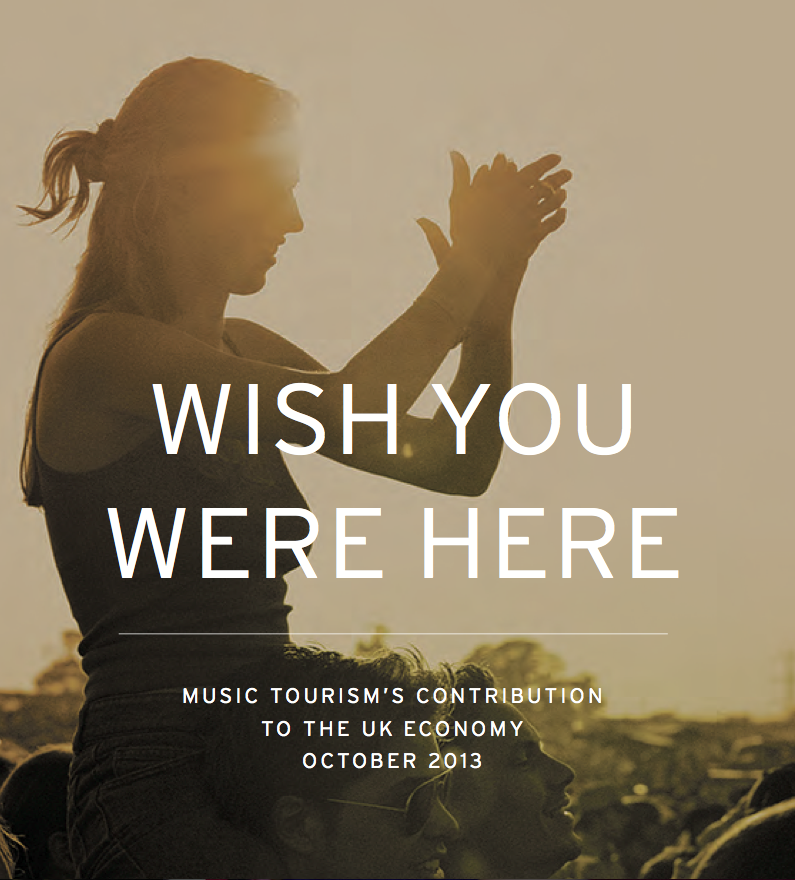Queen's Speech Shows the Coalition has not run out of steam
There has been been much talk of swivel eyed loons these past weeks. The Tories are back into the obsession with Europe that brought down the Major government in1997.
Cameron thought that by enshrining the right to a referendum in legislation if any further powers were sought by the EU that he'd helped neuter the issue.
Sadly UKIP's success in achieving 25% of the vote in the recent local government elections and in standing at only 2% behind the Conservatives in national opinion polls has created panic among his own ranks.
All the mainstream parties it must be said under-performed in the local elections, although the Lib Dems can take comfort from a solid performance in their MP held seats.
It is not easy to interpret UKIP's success. Is it really based on a desite to exit the EU or cut back on immigration or is a desire to turn the clock back to 1955?
Where does it all leave us? Next year we have the Euro-elections when UKIP are bound to do well when the electorate are not faced with electing a government and there will only be a year to go before the General Election.
Disunity is the cardinal; sin of politics. If the Tories continue on the current track their lack of unity will lead to a much poor showing in the General Election. Labour have a very difficult in achieving a swing sufficient to win outright. With UKIP still unlikely to take seats that leaves a new coalition but one between Labour and the Lib Dems on the cards.
The irony is that this Queen's speech shows an unusual head of steam for a Government in its fourth year. Peter Oborne the Telegraph columnist, not known for his sympathy towards the coalition described the legislative programme unveiled as "brilliant".
With a Care Bill capping care coasts for the first time, a Pensions Bill introducing the single tier pension and the Children and Families Bill carried over which reforms SEN provision more radically than ever before, many of us agree.
All we need are some green shoots of economic recovery and then Lib Dems at least can look forward with some confidence towards the General Election.
Busking under threat in Camden
See the campaigns section and add your voice to those who want to reverse their perverse decision to insist on a licence from all buskers!
End of Term?
This is how many of us felt at the end of the current term in the Lords!
Actually this is me taking part in Dalston House an installation by Argentine artist Leandro Erlich, part of the Beyond Barbican programme.
It was in Ashwin Street near Dalston Junction Overground, and as they say resembles "a theatre set, the detailed facade of a Victorian terraced house – recalling those that once stood on the street – lies horizontally on the ground with mirrors positioned overhead. The reflections of visitors give the impression they are standing on, suspended from, or scaling the building vertically."
40 maps that explain the world
See the the fascinating set of maps which were recently published in the Washington Post. They give unexpected perspectives on some fascinating topics.
http://www.washingtonpost.com/blogs/worldviews/wp/2013/08/12/40-maps-that-explain-the-world/
Rock and Film the House 2014 are launched!
Along with rock stars, Brian May and Bruce Dickinson and distinguished film producer Lord Putnam Mike Weatherley MP launched the fourth Rock the House and the third Film the House together this week at a party on the Commons terrace. The former is designed to raise awareness of intellectual property rights and live music through a nation-wide competition to find the best unsigned talent the country has to offer and the latter is to celebrate the creative work of UK film makers. 450 MPs took part in Rock the House alone last year.
UK Hospitality and Tourism
One of my key concerns is Government policy towards the Hospitality and Tourism Industry which with the right policies and government support could, it is estimated, deliver 300,000 jobs in the UK by 2020. I recently took part in a British Hospitality Association Summit Panel when I advocated a much closer relationship between the industry and Government through the setting up of a Hospitality and Tourism Council comprised of BIS and DCMS Ministers, Visit Britain and senior representatives of the private sector so that a national strategy tackling many issues such as visas, APD, VAT, planning etc can be developed.
The BHA say:
"The immediate and direct follow up to the Summit has been very strong. We've held meetings with the UK Minister of Immigration and the President of CITS to advance the easing of visas for Chinese visitors. We've revitalised the BHA Adopt your MP campaign with even more members signing up to lobby their local MPs to influence change locally as well as in Westminster. We've fueled the industry's Cut Tourism VAT campaign and achieved continued press coverage to amplify our industry's calls to action. "
All Party Group debates the future of pharmacy
I recently spoke on a Panel at the All Party Pharmacy Group on 11th September about the the Future of Pharmacy.
Here is what I said:

Pharmacy in Britain is an incredible resource. I am a fan of pharmacy. It is often able to respond quickly and effectively to the consumer/customer/patient and to the right incentives.
It's called community pharmacy and the best pharmacies really are part of the community.
Some 10% of the NHS budget, when considering drug costs is channeled through community pharmacists
In the UK there are over 47,0000 registered pharmacists and over 21,800 pharmacy technicians. Of which there were 38,867 registered pharmacists and 18,165 pharmacy technicians in England last year.
The NHS Business Services Authority reports show that there were 11,236 community pharmacies in England at 31 March 2012.
That means there has been an increase from 9,500 of 15.3 per cent since 2002-03.
This compares to 10,000 GP general practices in England.
Of these 11,236, 61% are owned by multiples, that is they are in a chain of five or more.
They dispensed some 885.0 million items annually across England compared to 566.3 million in 2002/3.
So we have had huge growth in number of pharmacies over the past few years particularly as a result of the scheme to encourage new pharmacies that offer 100 hours a week to open.
That growth won’t continue.
Student Numbers
As former chair of the School of Pharmacy I have a strong interest in this area.
The Centre for Work Force Intelligence (CfWI) has now published a report on pharmacy workforce and student numbers which shows that by 2040 there will be an over supply of pharmacists of between 11,000 and 19,000. They recommend a staged approach to managing these numbers.
There has been a huge increase in graduate numbers with the expansion of schools of pharmacy in England from 12 to 21 in between 1999 and 2009, with several more opening or due to open.
This is not just due to new school of pharmacy opening, but also an expansion in numbers by the established schools. For example, several universities have a campus in Malaysia which swells their final year cohort. For example, Nottingham have around 300 students there.
This means too many graduates coming through the system from both the new and established schools. The number of undergraduates at any one time has gone from 4200 in 1999 to over 9800 in 2009. In the 2011/12 academic year there were 10,951 pharmacy students and 3,104 entered MPharm programmes in England .
This not only places pressure on clinical placements and academic resource but on preregistration places in pharmacies These are wholly within the control of employers –despite the investment made by the DoH – and are becoming much more scarce. NHS pre-registration training positions are falling too.
So we have a major issue now with an over supply of graduates from our schools of Pharmacy.
How do we ensure that we have the right number? How do we ensure that the education they undertake and the debts that they incur gives them the clear prospect of employment
This is under debate. BiS and DoH are in discussion about how numbers can be regulated with HEFCE the GPhC the RPS and the schools of pharmacy. At the request of the government, The Higher Education Funding Council for England (HEFCE) and Health Education England (HEE) are consulting on the supply of pharmacy graduates in England.
The consultation started on 2nd September, 2013 and will run until the 15th November, 2013.The HEFCE/HEE joint consultation proposes three options:
- To continue to allow the market to determine the number of pharmacy graduates
- To introduce an intake control at each university for entrants to MPharm pharmacy programmes
- To create a break-point during study which enables some students to graduate with a Bachelor of Science degree and others to progress through further study to qualify as registered pharmacists
Which option do we chose given that the market seems not to be delivering an acceptable solution?
Controlling the entry numbers is the medical nursing and dentistry option. But who is going to do that and how?
Neither HEFCE nor GPhC appear to want to do this.
It might even be preferable rather than spreading pain across all schools to licence certain schools to deliver the MPharm and or the Bsc on the basis of quality. Could the GPhC take this on?
Even if a cap on student numbers were to be implemented tomorrow, there will still be a 5-6 year lag in the system.
As regards the actual content of the MPharm we have had an increasingly well qualified graduate population especially over the last 10 years.
The MPharm coursescould be even better.
A review conducted for Medical Education England proposed an integrated 5 year course including a much greater clinical content with a strong contribution from employers as the 5 years would include 2 practice placements.
Joint sign off by the HEI and the employer would be needed to graduate.
Past Initiatives
Currently however it is arguable they are over educated for what they do.
We need to use our pharmacists to better clinical effect particularly in primary care.
This is not to say that successive governments and the pharmacists themselves have lacked ambition .
Many of the initiatives taken involving pharmacy don’t get buy in from GP’s. For example the latest statistics available (28 June 2013) show that 90% of pharmacists can receive electronic prescriptions but only 10% of GP’s are in a position to prescribe this way.
Pharmacists have invested money in consulting rooms but many have yet to see a return.
Whether initiatives have been effective seems to depend on whether a service is centrally mandated or at local discretion.
Contrast centrally funded Advanced Services eg New Medicines Services and Medicines Use Reviews with Enhanced Services such as Obesity initiatives locally commissioned by CCGs and formerly by PCTs.
MUR’s were introduced in 2005 under the new contractual arrangement for pharmacy under the Labour Government-and far better in their impact than the GP’s equivalent -are conducted by community pharmacies. Compared to 2.1 million in 2011/12.
A total of 2.4 million Medicines Use Reviews (MUR) were conducted by community pharmacy contractors in England in 2011-12, compared to 2.1 million in 2010-11, an increase of 325,524 (15.4 per cent).
Enhanced services by contrast have been a great aspiration but how successful have they really been?
Local enhanced services –which are at the discretion of PCT’s/CCG’s have actually decreased. The number of local enhanced services provided by community pharmacies in 2011-12 decreased by 1,679 (5.4 per cent) to 29,283 since 2010-11
Of the twenty services commissioned by PCTs the most commonly commissioned services in 2011-12 were Stop Smoking (19.2 per cent), Supervised Administration (19.1 per cent), Minor Ailment Scheme (12.1 per cent) and Patient Group Direction (11.9 per cent).
So we need to be very careful about we fund and configure services for the future.
The Future
As AT Kearney’s recent study shows however the winds of change are blowing.
What it calls the five forces for change are on the way which will inevitably mean closure of significant numbers of pharmacies.
- Squeeze on healthcare budgets
- Intensifying competition
- Transformation of the supply chain
- Emergence of new alternative channels
- Demand for convenience and expertise
Kearney says that in the face of these forces pharmacies can build on their trusting relationships with customers to become a front line point of care.
Unless we invest wisely in community pharmacy now, and build intelligently on the heritage of NHS community pharmacy and GP practice and if too much future investment goes into bigger secondary institutions rather than truly local facilities we will not gain the advantages of the new technologies now being introduced in medicine and IT.
We need to recognize the people want much more control over their own health. They want information and professional advice and support to be able to make choices. The classic change from Klein’s Church to Garage model! How do we best deliver what is called self care?
Change is under way in the pharmacy already. The future is robots on the one hand for dispensing and diagnostics and other skilled preventive and medicines management roles on the other.
The fact is that with reduced budgets and generics pharmacists will have to focus on services rather than products.
Do we need in effect a new breed of apothecaries as suggested in a recent paper with a much stronger clinical role going beyond diagnostics and health checks?
In the end this will be good for patients and the pharmacy profession
Our current primary care system is not designed to deal effectively with public health issues. We need much greater emphasis on prevention. Despite the experience of Enhanced Services we need major action on Smoking, diabetes, hypertension.
We need much better ways too of dealing with minor ailments.
Then there is the management of long term conditions allied to supporting independent living at home. The demographics mean that more older people living longer. 50% of the population will be over 50 by 2024.
With scarce resource Medication Therapy Management (MTM) will become even more important. We need to find effective ways of supporting NICE’s Guidelines on Adherence
Research by Prof Rob Horne and Professor Nick Barber at the School of Pharmacy, UCL shows that 50% of medicines not being used to best effect.
Some regarded the MUR’s as little more than a chat.
So the New Medicines Service was introduced as a result of this UCL School of Pharmacy research in 2011 to help support patient taking a new medicine and involved pharmacists phoning patients a week after starting an new medicine to check that they are adherent.
Pharmacy could contribute greatly to all these issues as the so called Third Pillar of Health care.
The new RPS Faculty has the potential to be an important development for the profession. The RPS launched it earlier this year, and it is in essence an accreditation structure for the profession, allowing those in practice to develop their clinical skills and become recognized for their achievements.
This recognises that Propper and more clinical use of pharmacists could lead to a massive reduction in hospital admissions and the productivity savings the NHS desperately needs but seems unlikely to achieve.
For much of this pharmacists will need appropriate access to health records.
Much will depend on the ability to collaborate with GP’s.
Why does it seem that GP’s are so reluctant? Do GP’s want to be want to be the gateway for everything even for preventive health care, self care , minor ailments and medicines management for which pharmacists are ideally suited?
Pharmacists need to operate more more flexibility too.
The greater use of technicians and more flexible contracts instead of locums.
How about new pharmacist staffed Community Health Centres.
Maybe pharmacists should be given a more explicit out of hours role.
This all leads to the question of how much professional freedom we give to the pharmacists.
My view is that the pharmacist of the future with the developments underway in pharmacy education mean that pharmacists will be well able to undertake much more clinical responsibility and we must encourage it. I hope this will be in cooperation with GP’s.They crucially need to move with times too.
There are some positive signs here as I see that the head of the dispensing doctors association Richard West is very positive about the role that pharmacists can play in reducing GP workloads.
UK Music launches excellent new report on Music Tourism
UK Music have published an excellent report on Music tourism: Wish you Were Here
This follows their groundbreaking last report in 2011, Destination: Music—the Contribution of Music Festivals & Major Concerts to Tourism in the Uk
The main messages are:
We’ve uncovered a hidden gem. Music tourism has never been properly studied before.
Groundbreaking research. Unprecedented access to data – to give us the most comprehensive picture ever of live music and tourism.
Significance of music tourism to economy reaching highest levels – from Prime Minister to House of Lords debate to new partnerships with tourism authorities.
They are calling for an overarching music tourism strategy to maximise potential.
The Main Statistics are:
- UK Music counted 6.5 million music tourists in 2012.
- On average, 41% of the population at live music events is comprised of music tourists.
- Music tourism is generating £2.2 billion in spending overall.
- £1.3 billion of that is spent directly by music tourists themselves,
- Their presence stimulates a further £914 million in spending further down the supply chain.
- Music tourism is sustaining 24,251 jobs overall.
- 16,135 of those jobs exist as a direct result of music tourism
- a further 8,115 jobs were created further down the supply chain as a result of music tourism
- These are “full-time equivalent” jobs – so if there are two part-time jobs of 20 hours a week, or 4 seasonal jobs each lasting 3 months, we count them as one FT job.
- Music tourism contributes nearly a billion pounds (£934 million) to the nation’s wealth as measured by GDP
- 544 million as a direct result of music tourism
- A further £390 million as a result of economic activity further down the supply chain.
- Overseas music tourists comprised just 6% of the total music tourism population, but they accounted for 20% of total spending by music tourists. They’re like gold dust. Per capita, they each spend nearly a grand (£910) in the UK when they come here to attend music festivals, and nearly £400 (£396) when here to attend a gig. This includes spending at the live music event itself as well as what they spend over the course of their stay in the UK.
This is a great Report. It identifies the opportunities extremely well .
What we now need, as I said in Lord Storey’s debate in June, is for the Government to team up with VisitBritain,the Arts Council, the British Council the music industry, the tourism and hospitality industries and others to identify the “real levers and barriers” to growing music tourism at national level, in many cases red tape and do the necessary. We need a properly joined-up strategy, particularly in terms of reducing regulation
A Warm Welcome to the Copyright Hub
Very good to see that the Copyright Hub, the new database designed to simplify copyright licensing which Richard Hooper and Ros Lynch have been working on with the co-operation of all the creative industries and rights holders, is up and running at
What a contrast to the way the IPO has gone about adding new exceptions to copyright! Rather than rush into agreeing the new exceptions-for parody, education etc we should see how the Hub works in obviating the need for new exceptions.
In Memoriam Nelson Mandela
Many of us in South London remembered Nelson Mandela visit to Brixton in July 1996 which formed an exciting part of his state visit that month as President of South Africa. There was an amazing outpouring of love and respect.This was a man who had overcome apartheid and racial prejudice and hatred to create a new nation. What a role model! I don't think Brixton has looked back since!












